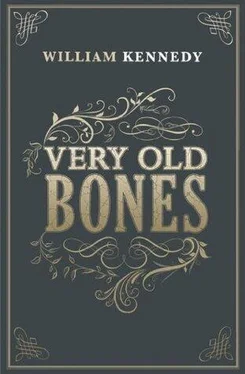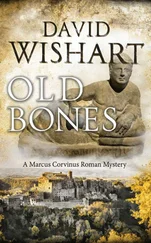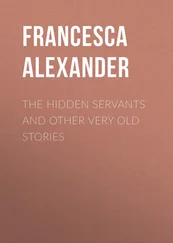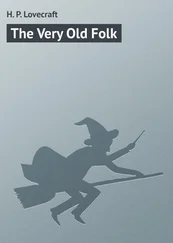“We’ll carry her, Colm,” said Malachi, and the dimwit rolled off Lizzie’s legs. Then he and Malachi carried the now limp figure toward the hearth as Mab stoked the fire with a poker. Lizzie’s nightgown was off her shoulder and Malachi ripped it away and it fell on the floor. Mab moved the grate back and Malachi sat Lizzie on it so she faced the fire.
“Are you goin’ to make a pork chop out of me, Malachi?” she asked. “Won’t you give me a chance?” And on the dark side of the room the women fell on their knees in prayer.
“Do you know what I’m doin’ here, Ned Cronin?” Malachi called out.
“Jesus, Mary, and holy St. Joseph,” said Ned, “I pray you know what you’re doing.” And he knelt beside the women.
Malachi leaned Lizzie toward the fire and when it touched her it set her calico chemise aflame. Kathryn Phelan wailed and screamed at her brother, “You’ll live in hell forever for this night, Malachi McIlhenny. It’s you who’s the demon here. It’s you that’s doing murder to this woman.”
Malachi let go of Lizzie and she fell away from the fire, burning. He watched, with Crip beside him, and Colm holding the now unconscious Lizzie by one arm.
“Away she go, up the chimney,” Malachi said. “Away she go!” And he waved his good arm into the flame.
“I saw nothing go,” said Crip.
“Hail Mary, full of grace, the Lord is with thee, blessed art thou amongst women,” said Kathryn on her knees.
“Come home, Lizzie McIlhenny!” yelled Malachi, waving his arm, watching his wife’s body. The room was filling with smoke from Lizzie’s burning clothes and flesh.
“Beast!” screamed Kathryn.
“Do you think that’s Lizzie that’s lyin’ there?” Malachi asked.
“I saw nothing leave her,” said Crip.
“More fire,” said Malachi, and Colm leaned Lizzie back toward the flames. Another edge of her chemise caught fire and now half her torso was exposed, the flesh charring from below her left breast to her hip.
“Let her down,” said Malachi, and from the floor beside the fireplace he took a can of paraffin oil and threw it onto Lizzie’s stomach. Her chemise exploded in flame.
“Away she go!” yelled Malachi, waving his arm. “Away she go!” And he threw more oil on her.
Kathryn Phelan ran to the wildly flaming Lizzie and threw herself on top of her, snuffing the fire, burning herself, and sobbing with the grief known in heaven when angels die.
The last painting Peter put on exhibit for his luncheon guests was The Protector , a portrait of Kathryn Phelan smothering the flames on Lizzie’s clothing, her own maternity dress aflame at one corner, the smoke obscuring half her face, the other half lit by firelight. Kathryn’s burns were not severe but her act did precipitate, two days later, the premature birth of Peter Phelan, child of fire and brimstone, terror and madness, illusion and delusion, ingredients all of his art.
I had asked him why he chose to resurrect Malachi, such a dreadful figure in the family’s life, and he said he could not answer with any accuracy, that the Malachi he was painting wasn’t the Malachi of history, that, in whatever ways his paintings reflected reality, they would fall far short of the specifics of that reality, which was always the fate of anything imagined. “We try to embrace the universe,” Peter said, “but we end up throwing our arms around the local dunghill.” And yet he felt that whatever he imagined would somehow reflect what was elusive in the historic reality, elusive because its familiarity and its ubiquity in real space and time would make it invisible to all but the imagining eye.
In this context, what he had intuited from the Malachi story was the presence of a particular kind of thought, a superstitious atmosphere aswirl with those almost-visible demons and long-forgotten abstractions of evil — votive bats and sacrificial hags, burning flesh and the bones of tortured babies — the dregs of putrefied religion, the fetid remains of a psychotic social order, these inheritances so torturous to his imagination that he had to paint them to be rid of them.
He had always rejected as extraneous any pragmatic or moralistic element to art, could not abide a didactic artist. Nevertheless, his work already had an effect on the moral history of the family, and would continue to do so through the inevitable retellings of the story associated with the paintings; and these retellings would surely provide an enduring antidote to the poison Malachi had injected into the world. The work would stand also as a corrective to the long-held image of Kathryn in the family’s communal mind.
“As much as we loved her, none of us can undo the two generations’ worth of trouble and anguish she caused,” Peter said, and he quoted Francis as saying long ago, “She didn’t really know nothin’ about how to live.” Peter agreed there was some truth in this, but he added that Kathryn surely knew how not to live under the mad inheritance that had destroyed Malachi and Lizzie; and that the thing she knew best was denial, the antithesis of Malachi’s indulgent madness. After Malachi, Kathryn had even denied herself the pleasure that had probably been hers with the conception of Peter (the subsequent children were conceived under duress).
And, by convincing her husband to make the deathbed request to Sarah, she had imposed on the girl the scullery-nunnery existence that made Sarah deny and eventually destroy her own life rather than admit that lives of sensual pleasure were not only possible, but sometimes eagerly pursued outside the cloistered innocence of this house. She became a mad virgin, Sarah, the dying words of Michael Phelan her dungeon, the courage of her saintly, sinless mother the second-generational iron maiden of her fate.
No chance at all to rescue Sarah. No bequest for Sarah.
No chance to rescue Tommy either. His spinal injury turned into a plague of unpredictable immobility and, when he went back to his job as a sweeper at the filtration plant, the pain struck him so severely that he collapsed and rolled into the thirty-five-foot depths of one of the plant’s great filtering pools; and, having been unable to learn to swim any more than he could learn to think, he drowned, another martyr to the family disease.
And not much of a chance to lure the maverick Chick out of his Floridian indignance and back to the family circle. He telephoned Peter from Miami Beach, acknowledged the bequest, offered lively thanks for what he said would be his hefty down payment on a sporty inboard motorboat he’d been longing to buy, invited his brother to come down and go ocean fishing, said Evelyn sent her best, and hung up, maybe forever.
By the time lunch was about to be served, the light rain had become heavy, a storm gaining strength, according to Peg’s reading of the weather story in the Knickerbocker News.
“It’s going to rain all night, and some places might get floods,” she reported. She was at the table, where Peter had told her to sit. The rest of us were standing half in, half out of the dining room, waiting for Peter to seat us. Molly was still in the kitchen, organizing the meal.
“The Senators won’t play ball tonight,” Billy said.
“George’s Democratic picnic must be rained out too,” Peg said.
“Democrats like the rain,” Billy said.
“The Irish like the rain,” Peter said. “Three days of sunshine and they start praying for thunderstorms.”
The roast lamb lay in slices on the platter in the center of the table, and on the sideboard the leg itself, on another platter, awaited further surgery. Molly had asked me to carve but before I could begin Peg suggested Billy do it, for he did it so well. And so he did, and when only half finished he asked Molly, “You got any mint jelly to go with this?”
Читать дальше












